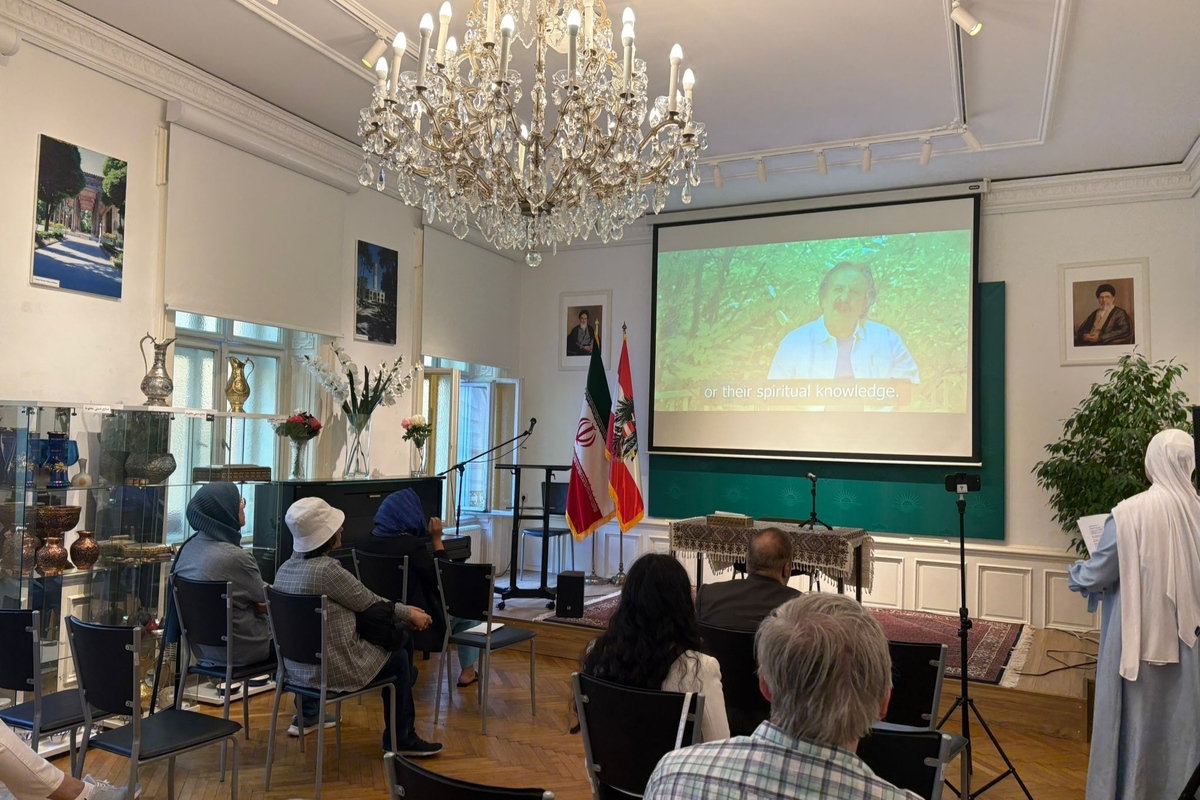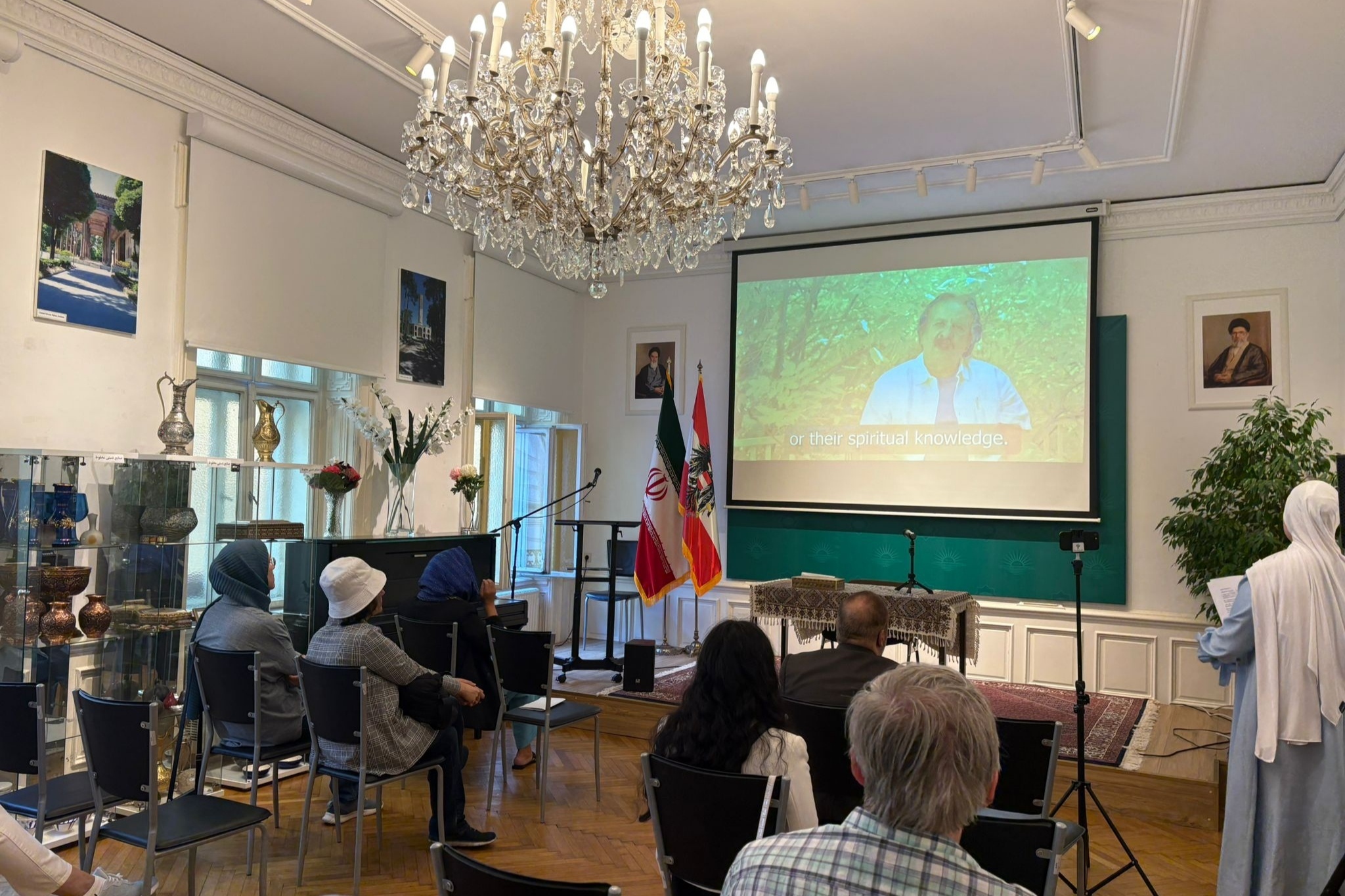Cinematic Event in Vienna Highlights Moderate Islam


The event was organized by the Islamic Republic of Iran’s Cultural Center in Austria and in cooperation with the Institute for the Intellectual Development of Children and Young Adults.
Titled “A Message of Empathy and Human Solidarity for the World: A Cinematic Reading of Majid Majidi’s ‘Muhammad: The Messenger of God’,” the session was timed to coincide with the Organization of Islamic Cooperation’s (OIC) designation of 2025 as the “Year of Commemoration of the 1,500th Birth Anniversary of the Noble Prophet of Islam.”
It aimed to promote the Prophet’s teachings of mercy, justice, and human solidarity.
A key highlight was a video address from director Majid Majidi. He discussed the process of making his film and compared it to works about other prophetic figures like Jesus, Moses, and Buddha. Majidi stated that the limited number of films about the Prophet Muhammad (PBUH) was an injustice.
“The world of Islamic cinema being limited to only two films about the Prophet of Islam (PBUH) is a form of injustice to him,” Majidi said. He called for this shortcoming to be addressed.
Majidi also criticized portrayals of the Prophet (PBUH) that are solely epic and warlike, calling this another injustice. He emphasized the Quranic description of the Prophet (PBUH) as a “mercy to the worlds.”
“In none of the battles during the lifetime of God’s Messenger was he the initiator; all those wars were defensive in nature,” Majidi stated.
He described the Prophet’s (PBUH) wartime charter as a charter of international ethics that could be utilized by the United Nations. He said it is unique for permitting defense only within an ethical framework, including guidelines for the good treatment of prisoners.
Referring to the Israeli regime’s genocidal war in Gaza, Majidi said the killing of children and the imposition of famine, happening under global silence, were signs of a world emptied of ethics and existential wisdom.
Another speaker, Iranian film director and writer Mohammad Reza Varzi, detailed the extensive production efforts behind the film.
Read More:
“For several years, our colleagues were involved in producing this film,” Varzi said. “First, a special cinematic town was built near Tehran and the city of Qom. Then, designers from inside and outside the country came and advanced the design work. After that, the screenplay took shape and production began.”
He explained the film’s focus on the Prophet’s (PBUH) childhood, noting its importance in Islamic history. “As a filmmaker, I imagine that research in producing historical works is of utmost importance and intensely engages the writer or screenwriter,” Varzi added.
Maliheh Norouzi, a theoretical art researcher based in Austria, analyzed the film’s artistic approach. She argued the film presents a “cinematic theology of empathy.”
“Throughout religions, cultures, and histories, we turn to specific figures not only for their teachings but for what they reveal about our identity and what we can be. Prophet Muhammad (PBUH) is one such figure,” Norouzi said.
She stated the film’s message transcends its theological roots to address a universal audience, including Christians, Jews, Hindus, Buddhists, and secular humanists.
Reza Gholami, Iran’s Cultural Attaché in Austria and a senior lecturer in political philosophy, spoke about the concept of “Moderate Islam” as reflected in the Prophet’s (PBUH) life.
“In these blessed moments, as we gather to honor the 1,500th birth anniversary of the noble Prophet of Islam (PBUH), we have a unique opportunity to reflect on one of the brightest aspects of his divine mission: ‘Moderate Islam’,” Gholami said.
He outlined ten key characteristics of Moderate Islam drawn from the Prophet’s (PBUH) example: kindness and love; forgiveness and selflessness; goodness and goodwill for all; tolerance; peaceful coexistence; support for the weak and needy; knowledge, openness, and pluralism; peace and the avoidance of violence; balance between worldly and spiritual life; and social responsibility and global peace.
“Moderate Islam is, in the truest sense, the authentic Islam of the Prophet (PBUH); a faith built on the solid foundations of love, human dignity, moderation, and noble ethics,” Gholami stated. “If this brilliant essence is properly understood and implemented, it will lead not only to individual happiness but to lasting peace and global justice.”
The event concluded with warm reception from the audience and positive online feedback, marking it as a step towards enriching cultural dialogue between Iran and Austria.
4304694



